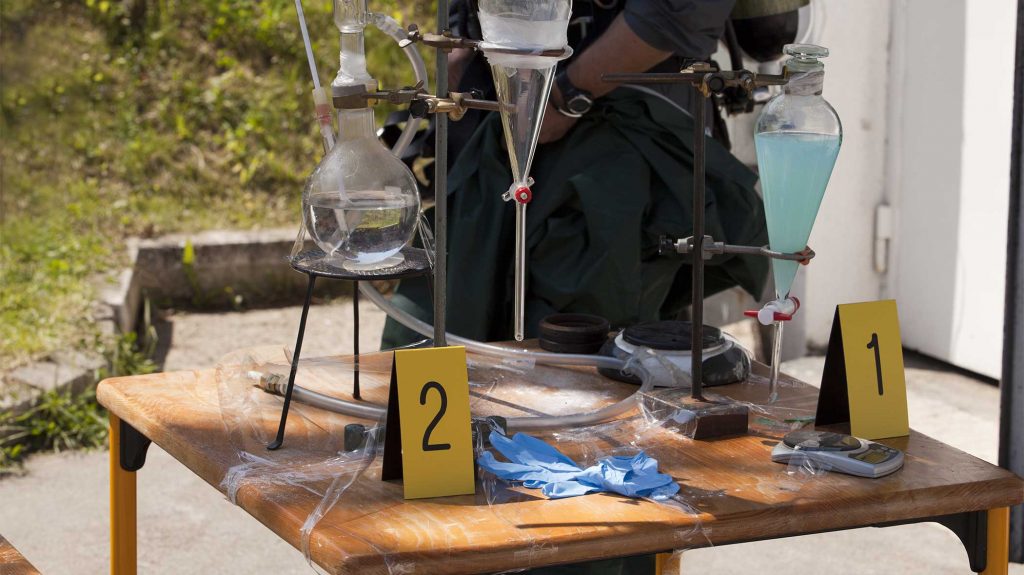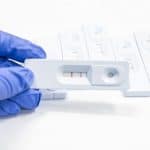While Massachusetts has been hit hard by the opioid crisis, many residents have also started struggling with a non-opioid drug: methamphetamine.
Also called meth or crystal meth, methamphetamine is a powerful stimulant drug that poses a high risk of addiction. Fortunately, meth addiction is treatable.
The Growing Meth Problem In Massachusetts
In the past, meth rarely appeared in Massachusetts. It was most popular among specific groups, including high school and college students, the gay community, and people who frequented all-night dance parties (also called “raves”).
Since then, meth use has become much more widespread.
Over the last ten years, methamphetamine seizures by Massachusetts law enforcement officials have increased between 1,700% and 2,900%. Researchers have identified several factors that may have contributed to this increase:
Lower Costs
Meth has become increasingly cheaper in Massachusetts and the rest of New England.
Thus, some residents who are addicted to other drugs have switched to meth to save money. They may also mix meth with other drugs to achieve a more intense high or to offset the effects of “downer” drugs, such as heroin.
In addition, since the price of meth has dropped, many people without homes have started using the drug to stay awake all night so they can defend themselves against robbery and assault.
Changes In Meth Production
Most meth in the United States comes from Mexico. For many years, Mexican drug trafficking organizations made meth using a chemical called ephedrine. In most cases, they only brought the drug to the western United States. In 2009, the Mexican government outlawed ephedrine in an effort to reduce meth trafficking.
Unfortunately, this attempt backfired. Traffickers replaced ephedrine with a variety of other industrial chemicals, such as acetone, ammonia, and lithium.
Since these chemicals are easily accessible, traffickers have started producing much larger quantities of meth and bringing them anywhere in the United States, including Massachusetts.
Concerns About Fentanyl
As people learn about the dangers of opioids, especially fentanyl, they often see meth as a safer alternative. It’s true that fentanyl poses a higher risk of fatal overdose than meth. However, meth comes with plenty of its own health risks, including:
- extreme anxiety
- psychosis (a feeling of disconnection from reality that may include paranoia, delusions, and hallucinations)
- severe dental problems (also called “meth mouth”)
- stroke
- heart attack
- damage to the brain, liver, kidneys, or lungs
Despite these risks, many Massachusetts residents who struggle with meth never seek help.
According to the Massachusetts Department of Health, only a small percentage of people who call the Massachusetts Substance Use Helpline report meth as their primary drug of abuse.
This might be because meth addiction is highly stigmatized, which can prevent people from admitting they have it and seeking help.
Signs Of Meth Use
If you suspect that someone you love is using meth, look for these signs:
- hyperactivity
- jitteriness
- irritability
- paranoia
- confusion
- excessive scratching that may cause sores and scabs
- sudden weight loss
- rotting teeth
- burns on the fingers or lips (from smoking meth)
You may also find meth paraphernalia (items associated with meth use) in the person’s home or vehicle. These items may include:
- glass pipes, tin foil, aluminum cans, and hollowed light bulbs for smoking meth
- hollowed pens and cut straws for snorting or smoking meth
- needles and syringes for injecting meth
Treatment For Meth Abuse & Addiction
If you or a loved one struggles with meth, it’s important to seek treatment as soon as possible.
Some people choose inpatient treatment (meaning they live at a treatment center), while others choose outpatient treatment (meaning they regularly attend a treatment center while living at home). Your health care provider can help you decide which option is right for you.
Treatment Services
Whether inpatient or outpatient, the most common treatment services for meth abuse and addiction include:
- medical detox, in which doctors will help you slowly and safely stop using meth
- cognitive behavioral therapy, in which a therapist will help you cope with triggers (situations, people, or other stimuli that cause meth cravings)
- contingency management interventions, in which you’ll receive tangible rewards (such as gift cards or cash) for staying sober and progressing in your recovery
- family education, in which your loved ones will learn how to best support your recovery
- support groups, in which you can share your experiences with people recovering from meth addiction and other substance use disorders
You might also need treatment for any underlying mental health conditions (such as depression or anxiety) that contributed to your methamphetamine use. This treatment may include therapy, support groups, and, in some cases, medication.
If you or someone you love struggles with meth, please contact Northeast Addictions Treatment Center. Our substance abuse and addiction treatment programs offer personalized, comprehensive care to help you lead a healthy, meth-free life.
Sources:
Boston Globe — Meth has taken hold in Massachusetts
National Institute on Drug Abuse — Methamphetamine DrugFacts
National Institute on Drug Abuse — What treatments are effective for people who misuse methamphetamine?
National Public Radio — Seizures Of Methamphetamine Are Surging In The U.S.
Substance Abuse and Mental Health Services Administration — Know the Risks of Meth




